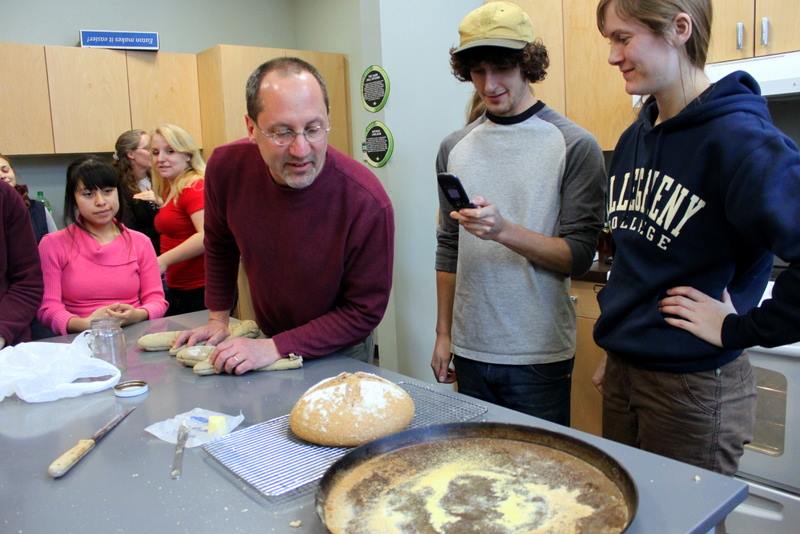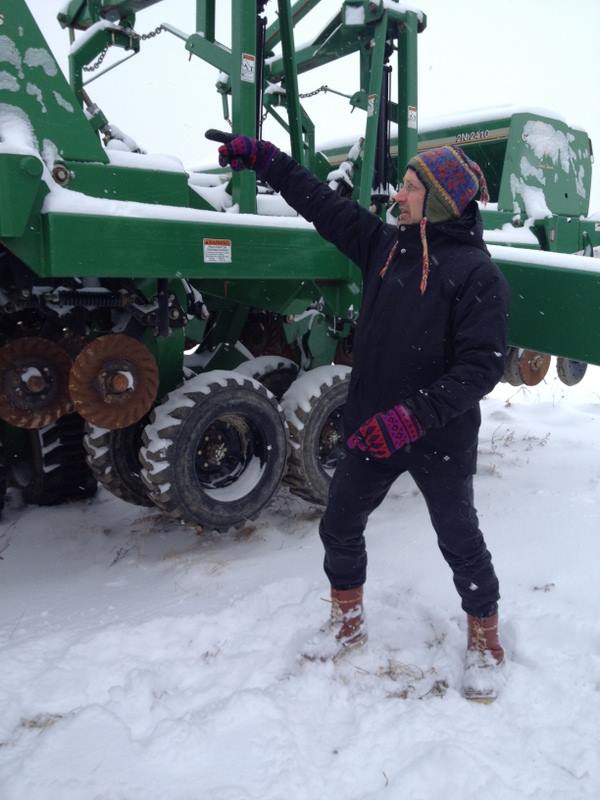
For Eric Pallant, Professor of Environmental Science at Allegheny College in Meadville, Pennsylvania, a career as an environmental scientist started out as a practical pursuit, but has turned into a lifetime spent solving problems, making the world a better place, and teaching young people to do the same. “Mostly what I do,” says Pallant, “is teach how to solve environmental problems any place in the world.”When he was a young man growing up in suburban New York, Pallant was advised by his father that “you’re only going to get a job if you go into science.” So he took his father’s advice and majored in Environmental Science at Wesleyan University in Connecticut, then studied Forestry and Environmental Studies at Yale, and earned his PhD from Cornell in Soil Science.
“I went into science because I had to,” he remembers.But a funny thing happened to Pallant on the way to the academy. He discovered that he was motivated not just by a desire to get a job and earn a living, but also by a concept called Tikkun Olam, a Jewish tradition of social responsibility which translates from the Hebrew into English as Repairing the World. Inspired by Earth Day and his experiences hiking, and by having watched his suburban childhood home transform into a sprawl landscape, Pallant found that he wanted to help others solve the central problem of managing the relationship between Earth’s growing population of human beings and its finite supply of natural resources. “Everybody in the world,” he says, “is confronted with environmental problems. Air pollution causes asthma in a neighborhood; contaminated food might arrive from another country loaded with pesticides or herbicides; people might face a heat wave or drought or colder winters. My job is figuring out solutions to some of these local, regional, and global problems.”
In Ghana, or the West Bank, or Bosnia, or even in northwest Pennsylvania, Pallant approaches problems by thinking first about people: “I don’t start with a theory,” he says, “but with a problem. Chemistry and math are not enough in the absence of knowledge about people, economics, politics, and motivations for why people do what they do.” In the West Bank and Negev regions of Israel, Pallant learned how Bedouin nomads produce and use biogas, natural methane gas for cooking, out of goat manure. This ingenious approach solves two problems at once: disposal of the goats’ waste and supplying ample cooking fuel. The plan works because it is designed to fit into the existing living patterns of the Bedouins themselves, rather than disrupting them for the sake of progress. Pallant then used his knowledge of making biogas to start similar projects in Bosnia and in his own town of Meadville, where he ran an experiment to use fish waste from a local aquaculture to make biogas.
As part of another important project, this one also in Meadville, his academic base, Pallant tries to help solve what he calls “the problems of a rural area and an urban area in a struggling, small Rust Belt city.” There, he is helping to organize a garden to teach local middle school students the connection between sustainable agriculture and healthy lifestyles. In a town where many young people eat junk food and get little or no exercise, the garden is a way to teach them to spend time outdoors working on a collaborative project, all while learning about tasty and nutritious alternatives to fried, frozen, and packaged foods. Pallant’s students will be studying ways to create a path from the school to the garden. His college students will propose ways to use the path to encourage middle schoolers to spend some time outside, exercising and enjoying additional landscaping, some of it possibly offering more treats.

With his scientific training, Pallant understands that mathematics allows him to make conclusions that others might not reach without those tools. “Understanding statistics is really valuable,” he says, “because it lets you understand how to take a sample and determine what the whole population is about without trying to ask every member of the population what’s going on.” He particularly appreciates the usefulness of significant difference, and is glad that his math education and experience enable him to separate truth from fiction. “People can manipulate and lie with statistics,” he says. “It is incredibly valuable” to understand the math behind those claims.
Even in a world with billions of people, Pallant retains his original idealism, believing that an individual can make an important difference in the world. “No, you can’t save the planet by yourself,” he admits. “Nor is turning down your personal thermostat going to make any difference at all in the grand scheme of things. But if everyone in your business is working together, then suddenly we’re talking about two or three hundred people. Then you can make a heck of a difference.” In everything he does, Eric Pallant breaks down problems to their most local, most accountable level, so that he can teach others, one at a time, to make changes that he hopes will help make the world a better place to live. “At the end of the day,” he tells himself, “you have to face yourself and ask, ‘Did you do the best you could?’”


